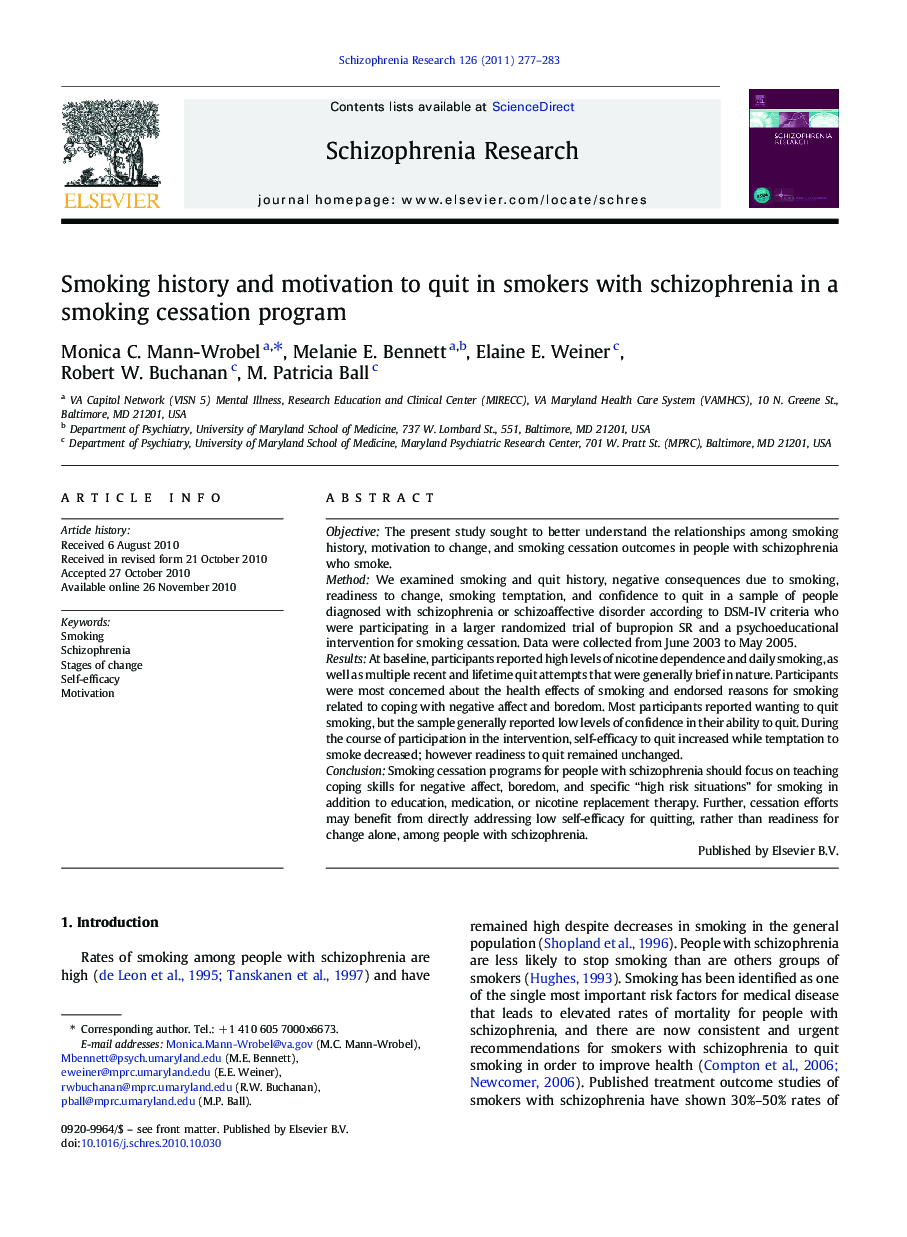| Article ID | Journal | Published Year | Pages | File Type |
|---|---|---|---|---|
| 339885 | Schizophrenia Research | 2011 | 7 Pages |
ObjectiveThe present study sought to better understand the relationships among smoking history, motivation to change, and smoking cessation outcomes in people with schizophrenia who smoke.MethodWe examined smoking and quit history, negative consequences due to smoking, readiness to change, smoking temptation, and confidence to quit in a sample of people diagnosed with schizophrenia or schizoaffective disorder according to DSM-IV criteria who were participating in a larger randomized trial of bupropion SR and a psychoeducational intervention for smoking cessation. Data were collected from June 2003 to May 2005.ResultsAt baseline, participants reported high levels of nicotine dependence and daily smoking, as well as multiple recent and lifetime quit attempts that were generally brief in nature. Participants were most concerned about the health effects of smoking and endorsed reasons for smoking related to coping with negative affect and boredom. Most participants reported wanting to quit smoking, but the sample generally reported low levels of confidence in their ability to quit. During the course of participation in the intervention, self-efficacy to quit increased while temptation to smoke decreased; however readiness to quit remained unchanged.ConclusionSmoking cessation programs for people with schizophrenia should focus on teaching coping skills for negative affect, boredom, and specific “high risk situations” for smoking in addition to education, medication, or nicotine replacement therapy. Further, cessation efforts may benefit from directly addressing low self-efficacy for quitting, rather than readiness for change alone, among people with schizophrenia.
